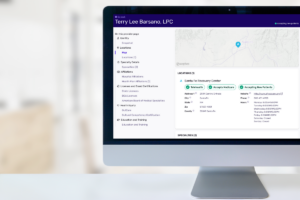In rural healthcare, timely access to crucial mental healthcare and other specialized services presents a significant challenge. Over the last decade, numerous rural hospitals have shuttered, with more at risk of closure due to staffing shortages, declining reimbursement rates, diminished patient volume, and challenges attracting talent. The answer to the challenges in rural healthcare is to get more data.
With very few options for specialty and subspecialty providers, rural patients often endure long journeys for necessary care. According to a Pew Research Center report, the average drive to a hospital in a rural community is approximately 17 minutes, nearly 65 percent longer than the average drive time in urban areas. Such systemic failures not only exacerbate disparities but also challenge the very foundation of patient care.
A functioning rural health system relies on legions of specialty care doctors conducting outreach visits across vast geographic areas. In principle, this approach presents an efficient means to provide rural patients with access to specialty care, eliminating the need for extensive travel to major urban centers. However, the persistence of inaccurate data poses a significant barrier to achieving comprehensive access to specialty care in rural regions.
Discover Bob Lindner’s take on how bad data exacerbates rural healthcare challenges and impacts patients on Chief Healthcare Executive.
Connect with Dr. Bob Lindner on LinkedIn. Read more from Bob with Automation, Machine Learning, and the Universe: Q&A with Veda’s Chief Science and Technology Officer and Co-founder, Dr. Bob Lindner.



